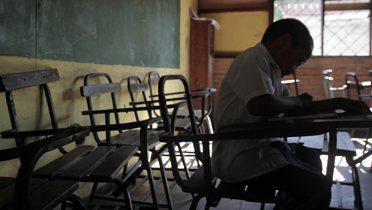Despite the undeniable benefits of education to society, the educational needs, particularly in the world’s poorest countries, remain strikingly great. There are more than 67 million children not enrolled in primary school around the world, millions of children who are enrolled in school but not really learning, and too few young people are advancing to secondary school (van der Gaag and Adams 2010). Consider, for instance, the number of children unable to read a single word of connected text at the end of grade two: more than 90 percent in Mali, more than 50 percent in Uganda, and nearly 33 percent in Honduras (USAID n.d.).
With more young people of age 12 to 24 years today than ever before who are passing through the global education system and looking for opportunities for economic and civic participation, the education community is at a crossroads. Of the 1.5 billion young people in this age group, 1.3 billion live in developing countries (World Bank 2007). The global community set the goal of achieving universal primary education by 2015 and has failed to mobilize the resources necessary, as UNESCO estimates that $16.2 billion in external resources will be need to reach this goal.
Read the full report »
Read the executive summary »
Results from this report were presented at an April 6 Center on Universal Education event at the Brookings Institution.



